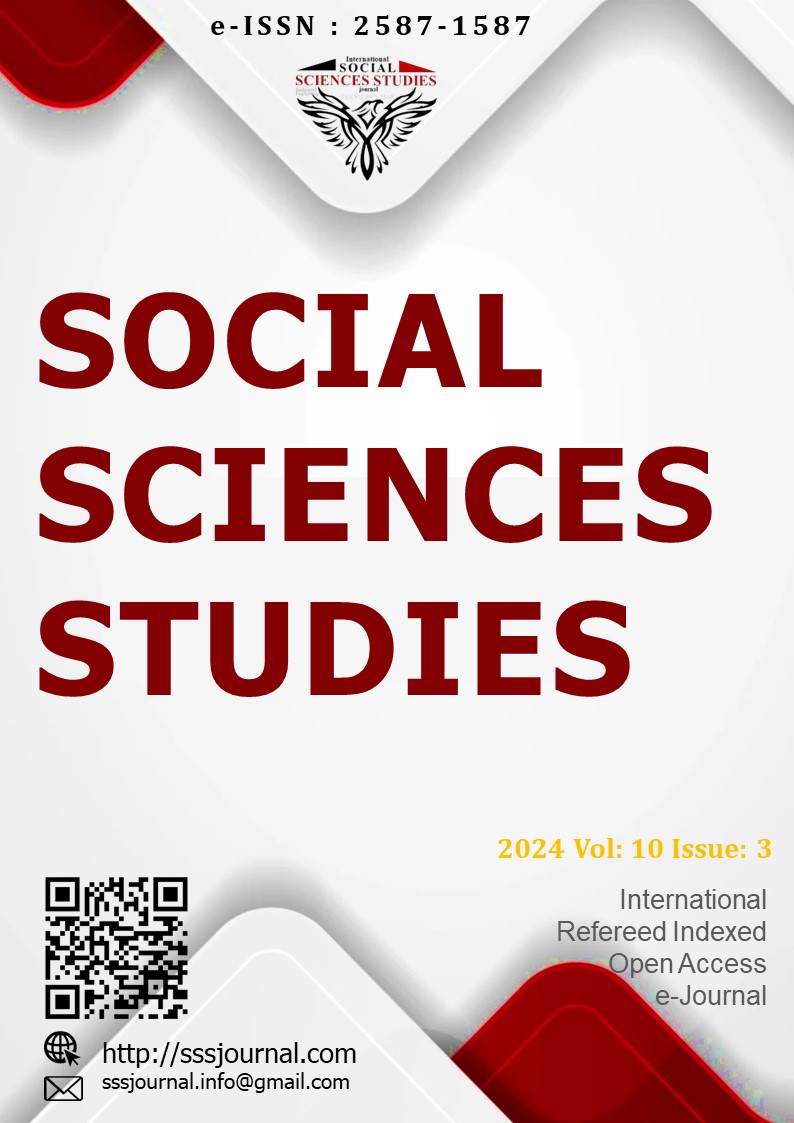Author :
Abstract
Kur’an’da günah manasına gelen birçok kavram mevcuttur. Bu makalede günah anlamında kullanılan bazı kavramlara yer verilmekte ve bazı kavramsal tahliller yapılmaktadır. Kur’an’da günah anlamına gelen kavramlar anlamsal zenginliğe işaret etmektedir. Fakat bu kavramlar incelendiğinde bazı hususlarda kullanım yönüyle farlılık görülse dahi aralarındaki ortak yönler müşahede edilmektedir. Dinen meşru olmayan çirkin bir fiilin işlenmesi olan günah ve günah anlamına gelen kavramlarda müşahede edilen zararlar arasında insanı hayır ve sevaptan geri bırakma, düşmanlık, doğru yoldan uzaklaştırma, inkâr etme, çirkin davranışa yöneltme, haktan sapma, haramlara dalma, nizamdan çıkma, sınırı aşma, adâletten şaşma, azgınlaşma, kargaşa, huzursuzluk, edepsizlik, ıztırab, ibadet ve itaatten alıkoyma vb. özelliklerle karşılaşılmaktadır. Bu niteliklerin ferdî, toplumsal ahlakî ve vicdanî zararlarının olduğu görülmektedir. Günah ve yakın anlamda kullanılan bu kavramlarda insanların bazen ihtiyarî bazen kasdi fiillerde bulunduklarına şahit olunmaktadır. İtikadî olmayan amelî yönü olan hata ve günahlar sebebiyle dinin emir ve yasakları ihlâl edilebilmektedir. Yapılan tahlillerde insan, günahlar sebebiyle şeriata ve ahlaki prensiplere mugayir davranışlar sergileyebilmektedir. İrade ve sorumluluk sahibi insanın şeytana boyun eğmesi sonucu günah kapsamına giren davranışlar, dünya ve ahirette birtakım cezaları gerektirmektedir. Bazı günahlar sadece Allah’ın hakkına veya kul hakkına gasptır. Yahut her iki hakkı da ihlal mesabesindedir. Kur’an’da günahlar, büyük günahlar ve küçük günahlar olarak iki şekilde kategorize edilmektedir.
Keywords
Abstract
There are many concepts in the Quran that mean sin. In this article, some concepts used in the sense of sin are included and some conceptual analyzes are made. Concepts meaning sin in the Quran point to semantic richness. However, when these concepts are examined, common aspects between them are observed, even if some differences are seen in terms of usage. Sin, which is the commission of an ugly act that is not legitimate by religion, and the harms observed in the concepts that mean sin, include depriving people of goodness and good deeds, hostility, alienating them from the right path, denial, directing them to ugly behavior, deviating from the truth, engaging in haram acts, going out of order, exceeding the limits, Deviation from justice, anger, turmoil, restlessness, rudeness, suffering, obstruction from worship and obedience, etc. features are encountered. It is seen that these qualities have individual, social, moral and conscientious harms. It is witnessed that people sometimes commit voluntary and sometimes intentional acts in these concepts, which are used in a sinful and close sense. The orders and prohibitions of religion can be violated due to mistakes and sins that are not faith-related and have a practical aspect. According to the analysis made, people can exhibit behaviors contrary to sharia and moral principles due to sins. Behaviors that fall within the scope of sin as a result of a free-willed and responsible person submitting to the devil require certain punishments in this world and the hereafter. Some sins are simply usurping God's rights or people's rights. Or both rights are in violation. In the Quran, sins are categorized in two ways: major sins and minor sins.





